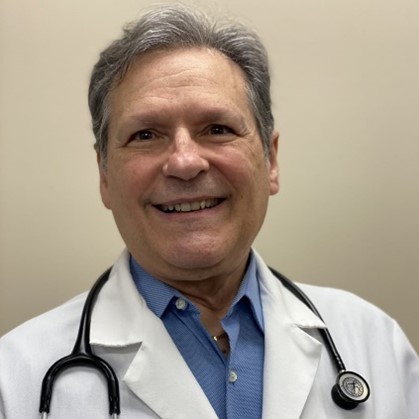Why Perinatal Mental Health Matters and What Pediatricians Can Do

Parisa Mansoori, MD, FAAP
January 23, 2023

José O. Rodríguez, MD, MBA, FAAP
January 23, 2023
A new mom recently started an appointment in one of our practices saying, “Last time you asked me if I was okay, and I wanted to tell you that I don’t think I am.” She was grateful that we had built the kind of relationship that laid the foundation for her to be able to ask for help.
As pediatricians working in states with high rates of maternal and infant mortality, we are driven to help new parents and caregivers beat these odds. One piece of this complex puzzle is caregiver perinatal depression and anxiety and its effect on the maternal-infant dyad and household health. About 12% of women experience depression during the perinatal period, which includes pregnancy and the first year after childbirth.
Depression during this period has been linked to several challenging child outcomes. It's crucial that as physicians, we recognize that parental wellbeing is one of the key factors in supporting infant growth and development.
Our current work around perinatal mental health was shaped by experiences working with diverse populations, including newly arrived immigrants and families with limited resources. Serving an international population comes with challenges and learning opportunities to connect with caregivers from all over the globe with varying backgrounds. This includes finding ways to mitigate challenges with screening due to language, literacy, or cultural barriers.
At times the affinity pediatricians have with caregivers is so natural, that it creates an illusion of effective communication. Coupled with assumptions we might have about families, we can miss families struggling with mental health challenges. In one of our practices, we did not recognize the struggles of some first-time parents with postpartum depression when they came in with their newborn for a visit. The parents were newly arrived immigrants, but because they were a college-educated couple with good jobs, we assumed that they would soon develop social connections and needed support. It was a surprise a year later to learn that they had struggled with postpartum depression. Both parents were able to get the support and treatment they needed, and the baby is thriving.
“Take opportunities to connect with someone’s culture and do not make assumptions. Families do not expect us to know everything about their culture, but they do appreciate it when we can learn from them.”
As pediatricians, we work hard to support families often under time constraints. Despite screening with a validated tool at the recommended intervals, clinical judgment should prevail to understand unwritten symptoms and we should humanize tools despite reassuring scores on paper. While the screening process can be daunting, we encourage our peers to try the following to help improve connections with families:
- Time: We don’t have enough, but it’s important to take the time. Establish trust from the first visit and explain why we screen for caregiver depression. Ask parents if they would like someone to read the Edinburgh (or another validated screening tool you may be using) for them, and then take the time to read it. Ask who supports them, who can help lighten their load. Check out this new AAP resource for additional mental health conversation starters.
- Team: Harness the power of your team. Recently a medical assistant (MA) in one of our practices noticed that a mother scored a 14 on her Edinburgh screening after the visit. The MA took the initiative to get the mom back into the room to talk with the pediatrician. Through additional questions and team interactions, the family was connected to housing resources, as their lack of stable housing was causing the caregiver deep stress with her newborn. By empowering our support staff and teaching them why these screenings matter, we can all build stronger practices.
- Culture: Take opportunities to connect with someone’s culture and do not make assumptions. Families do not expect us to know everything about their culture, but they do appreciate it when we can learn from them. This helps to understand any hesitation or pushback on conversations regarding mental health, and how to bring it up at future visits.
- Language: Work to build an inclusive and equitable practice. If your clinic doesn’t have screeners available in someone’s language, make sure to read the questions with the interpreter. Hot tip: Tuft’s Survey of Well-being of Young Children (SWYC) screeners, validated and at no cost, and available in many languages, has the Edinburgh as part of the screen at 2, 4, and 6 months. Information about this and other early childhood screening tools can be found at the AAP Screening Technical Assistance and Resource (STAR) Center page.
- Repeat: Ask how caregivers are doing at every visit. To set an expectation, tell parents upfront at the newborn visit that you will keep asking. AAP guidelines are to screen for perinatal depression at 1, 2, 4, 6 months of life. Find a way to integrate this into your flow. Recent findings have shown that peak incidence of maternal suicide is between 6 to 9 months postpartum, so you may consider further screenings at every visit.
- EHR: Use technology. Many parents have reported they prefer the privacy of answering these screening questions from their personal device. Your EHR system can likely accommodate assigning a screening on the patient portal before the visit. This saves time for the practice team, gives parents more time to thoughtfully answer, and sets the stage for a conversation.
- Normalize: Remind all new parents that they are not alone and that we bring up caregiver mental health so frequently because we know up to 1 out of 8 women are affected by postpartum depression.
- Encourage: If a parent is not ready to discuss high screening scores, or feels they can manage on their own, don’t push. Remind them you will repeat the screenings and encourage them to call the clinic (even if it’s tomorrow!) if they change their mind about wanting support or resources. Make it a point to invite parents to tell you at any time if they are struggling and be prepared with resources when they do.
- Collaborate: Use your resources. Work side by side with adult providers, OBGYNs, and mental health providers for warm handoffs to support parents’ mental health. Ensure that a dedicated staff member follows up with parents after visits. This type of collaborative effort can shorten inequity gaps, enhance support to families, and promote optimal child health. Many states offer a Perinatal Mental Health Care Access Program to facilitate connections to resources. If your state does not have one of these programs, the Postpartum Support International (PSI) National Perinatal Consult Line at 877-499-4773, may be of assistance.
Taking the time to support caregiver mental health can have long term positive impact on child outcome. The AAP Perinatal Mental Health and Social Support page provides additional resources and tools to support caregiver mental health in pediatric settings.
For help when it’s needed, call or text the National Maternal Mental Health Hotline at 1-833-9-HELPMOMS (1-833-943-5746). TTY User can use a preferred relay service or dial 711 and then 1-833-943-5746.
*The views expressed in this article are those of the author, and not necessarily those of the American Academy of Pediatrics.
About the Author
Parisa Mansoori, MD, FAAP
Parisa Mansoori, MD, FAAP, is a general pediatrician at Eskenazi Health and an assistant professor of Clinical Pediatrics at Indiana University School of Medicine in Indianapolis, IN.
José O. Rodríguez, MD, MBA, FAAP
José O. Rodríguez, MD, MBA, FAAP, is a primary care pediatrician at WellStar Health System in Atlanta, GA, a clinical professor of pediatrics at Medical College of Georgia, preceptor in pediatrics at Morehouse School of Medicine, and Graduate Medical Education (GME) adjunct faculty at WellStar Kennestone Family Medicine. Dr Rodriguez is on the Board of Postpartum Support International Georgia chapter.